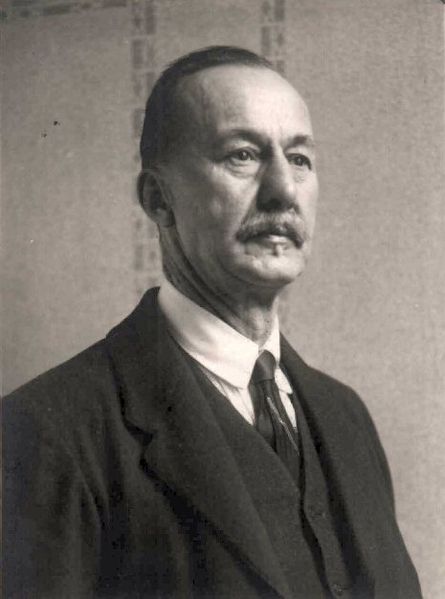<Back to Index>
- Mathematician Wilhelm Wirtinger, 1865
- Architect Inigo Jones, 1573
- 3rd Taoiseach of the Republic of Ireland Seán Francis Lemass, 1899
PAGE SPONSOR

Wilhelm Wirtinger (15 July 1865 – 15 January 1945) was an Austrian mathematician, working in complex analysis, geometry, algebra, number theory, Lie groups and knot theory.
He was born at Ybbs on the Danube and studied at the University of Vienna, where he received his doctorate in 1887, and his habilitation in 1890. Wirtinger was greatly influenced by Felix Klein with whom he studied at the University of Berlin and the University of Göttingen.
In 1907 the Royal Society of London awarded him the Sylvester Medal, for his contributions to the general theory of functions.
He worked in many areas of mathematics: according to Hornich, he authored 71 works. His first significant work, published in 1896, was on theta functions. He proposed a generalization of eigenvalues, the spectrum of an operator, which was extended by David Hilbert into spectral theory. Wirtinger also contributed papers on complex analysis, geometry, algebra, number theory, and Lie groups. He collaborated with Kurt Reidemeister on knot theory, showing in 1905 how to compute the knot group (fundamental group of a knot complement). Also, he was one of the editors of the Encyclopédie des sciences mathématiques pures et appliquées, 1913 – 1916.
Among his students were Wilhelm Blaschke, Leopold Vietoris, Erwin Schrödinger, Olga Taussky-Todd, and Kurt Gödel.